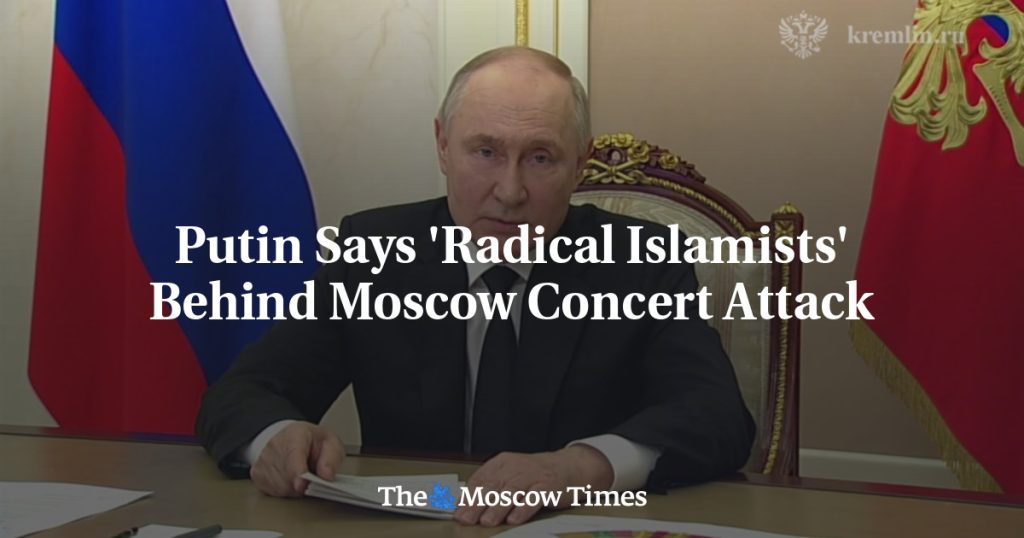President Vladimir Putin stated that “radical Islamists” were behind the recent attack on a concert hall outside Moscow, where camouflaged gunmen killed at least 139 people and wounded 182 others. Putin also suggested that Ukraine may have been involved in the attack and accused the United States of trying to cover it up. He mentioned that the attackers tried to flee towards Ukraine after the crime, raising questions about who might have been waiting for them there.
Putin referred to Ukraine as a “neo-Nazi regime” and insisted that the concert hall attack could be just one in a series of attempts by those who have been at war with Russia since 2014. He expressed skepticism about the US intelligence reports that denied Kyiv’s involvement in the attack and emphasized the need to explore why the terrorists were heading towards Ukraine after committing the crime. The Islamic State affiliate ISIS-K claimed responsibility for the attack, sharing graphic videos of the gunmen’s actions through social media.
Following Putin’s statements, Kremlin spokesman Dmitry Peskov refrained from commenting on the supposed ISIS link to the concert attack. The attack at Crocus City Hall was the deadliest incident in Russia since the 2003 Beslan school siege. The gunmen involved in the attack attempted to drive toward the Ukrainian border before being detained, reinforcing Putin’s claims of potential Ukrainian involvement in the crime. The president highlighted the ongoing conflict with Ukraine since 2014, suggesting that this attack could be part of a series of hostile actions against Russia.
Putin’s suspicion of radical Islamists behind the concert hall attack aligns with ISIS-K’s claim of responsibility. He accused the United States of misleading its allies and other countries about Kyiv’s alleged role in the attack, hinting at a possible cover-up by Washington. The connection between the Islamic State and the mass killing at Crocus City Hall raises concerns about the influence of terrorist organizations in the region and their ability to carry out deadly attacks. The president’s emphasis on Ukraine as a potential accomplice in the incident underscores the complex political dynamics at play in the aftermath of the tragic event.
The mention of “radical Islamists” as the perpetrators of the concert hall attack signifies Russia’s ongoing battle against extremist groups in the region. Putin’s assertion of a connection between the attack and Ukraine reflects the strained relationship between the two countries and the broader geopolitical tensions in the region. The claim of a cover-up by the United States adds another layer of complexity to the situation, highlighting the challenges of addressing terrorism and political unrest in a volatile environment. The aftermath of the attack raises questions about security measures, intelligence sharing, and international cooperation in combating extremism and promoting stability in the region.















